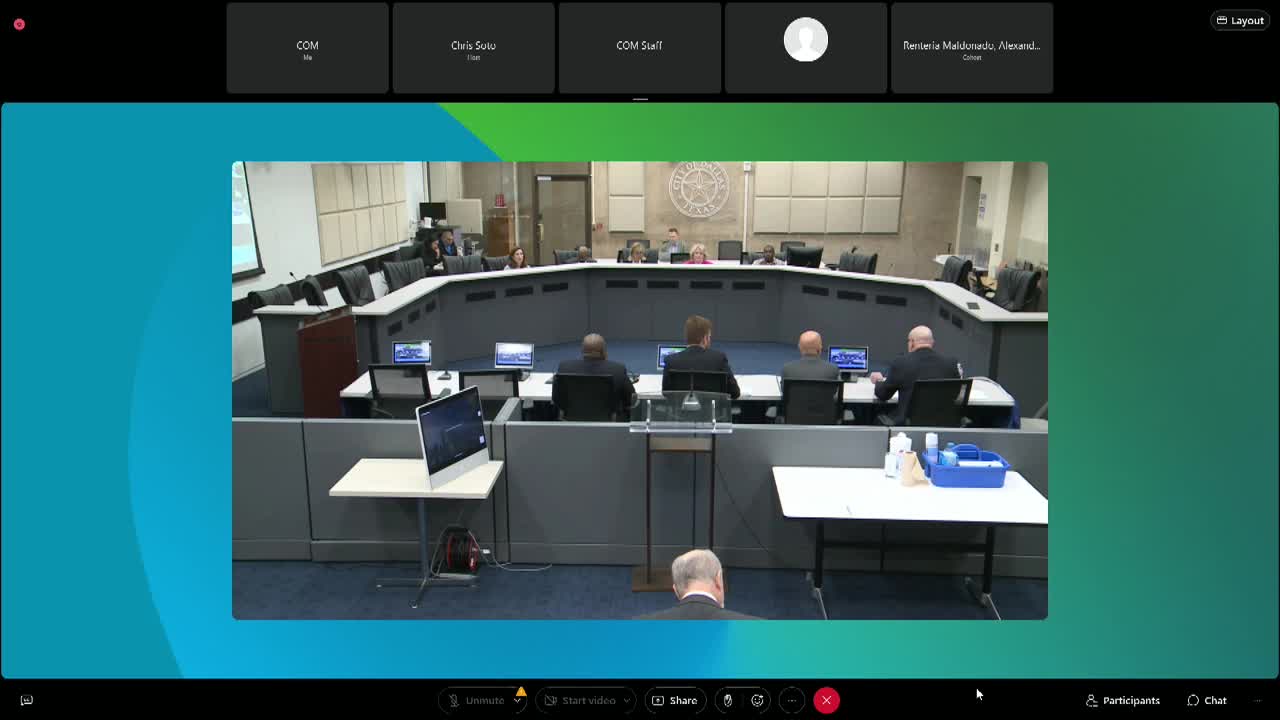Dallas committee adds limited law‑enforcement status for city inspector general to state legislative agenda
Get AI-powered insights, summaries, and transcripts
Subscribe
Summary
On Jan. 6 the City of Dallas Ad Hoc Legislative Committee voted to add limited law‑enforcement status for the Office of Inspector General to the citys state legislative priorities, after presentations from the interim inspector general and criminal justice officials on investigative tools, information sharing and restitution mechanisms.
On Jan. 6 the City of Dallas Ad Hoc Legislative Committee voted to add limited law‑enforcement status for the Office of Inspector General to the citys state legislative agenda under the committees "pursue" category, a move proponents said would expand the offices ability to investigate alleged fraud and corruption.
The item was introduced at the committees January meeting after a presentation by Bart Beavers, interim inspector general, who outlined the investigative tools the office lacks now and how limited law‑enforcement status would change its work. Committee members voted to add the item to the legislative program and to recommend it to the full City Council.
Beavers told the committee that national estimates put fraud losses in the 3%–7% range of revenue and that many cases involve corruption. "The ACFE has members in 138 countries and in their estimate fraud accounts for 5% of revenue," he said, summarizing industry figures. He highlighted practical investigative capabilities that require law‑enforcement designation: access to systems such as the FBIs National Crime Information Center (NCIC), the ability to seek grand juries, and authority to obtain criminal subpoenas, search warrants and arrest warrants. "Criminal jurisdiction was granted December 8, 2021 when the investigative responsibilities of our office included fraud and corruption," Beavers said, and added that achieving law‑enforcement status would permit joint investigations and information sharing that are difficult under the offices current status.
John Kuzeau, who described himself as a former administrator in the Dallas County District Attorneys Office, supported the proposal and warned of the limits of relying on outside agencies. "If you're relying on some other agency to do your investigation, you're already at a disadvantage," Kuzeau said. He described cases where outside investigators did not interview witnesses or did not prioritize municipal cases, and said an in‑house law enforcement function preserves institutional focus and timeliness.
Committee members asked practical questions about staffing and scope. Beavers said the office currently has five investigators, "three of our five investigators are interested in participating" in law‑enforcement duties and two are reluctant to carry firearms or perform field law‑enforcement obligations. He said a change in status would shift more staff time to criminal investigations while administrative investigations would continue to be handled but perhaps referred more often to other entities depending on resources.
Beavers and committee members discussed revenue recovery mechanisms. He described federal equitable‑sharing programs and state restitution procedures under Article 42 of the Texas Code of Criminal Procedure as potential avenues to recover assets when the city is a victim. He gave examples from prior work: when his former office prepared federal referrals, it generated federal recoveries; he noted instances where municipal offices participating in federal programs recovered six‑figure sums from declined federal cases. He cautioned, however, that asset recovery is episodic and depends on available assets.
Supporters described the proposal as a "stair step" in the offices evolution: independence had been approved by Dallas voters and criminal jurisdiction was already established; limited law‑enforcement status would be the next step to enable criminal investigative tools and interagency cooperation. Other committee members urged caution, saying the office is newly independent and that leadership and budgets should be settled before expanding responsibilities. One member stated they would oppose the measure when it comes to the full council despite the committee vote.
The committee recorded a voice vote in which the chair called for ayes; the motion to add limited law‑enforcement status to the legislative agenda was approved and the committee recommended the change to the full City Council.
The committee also reviewed the citys broader state legislative program and proposed reclassifications of several items (for example moving ranked‑choice voting from "pursue" to "support," and elevating card room clarity to "pursue"). Members asked staff to return with more detail on several health, utility and rail items before making final changes.
The committee forwarded the limited law‑enforcement status request as a pursuit item to the full council; members who urged caution said they want further discussion on staffing, budget and the offices administrative duties before any statutory change is sought in Austin.
The City Council will receive the committees recommendation; any change in Texas law or practice would require state legislative action and (if enacted) additional local implementation steps.
